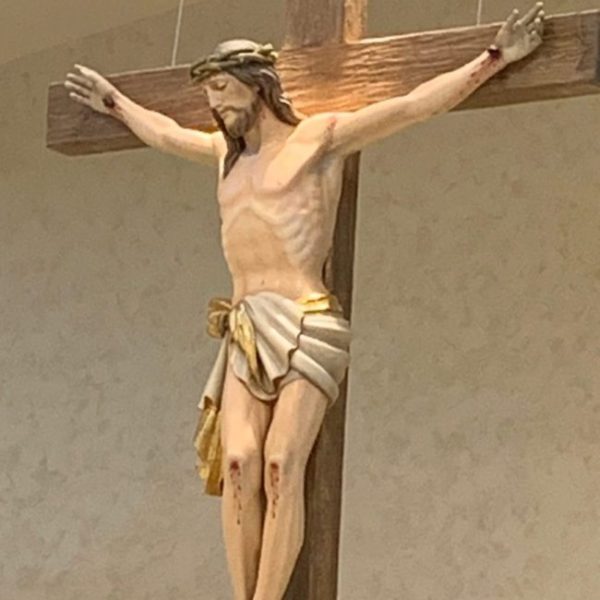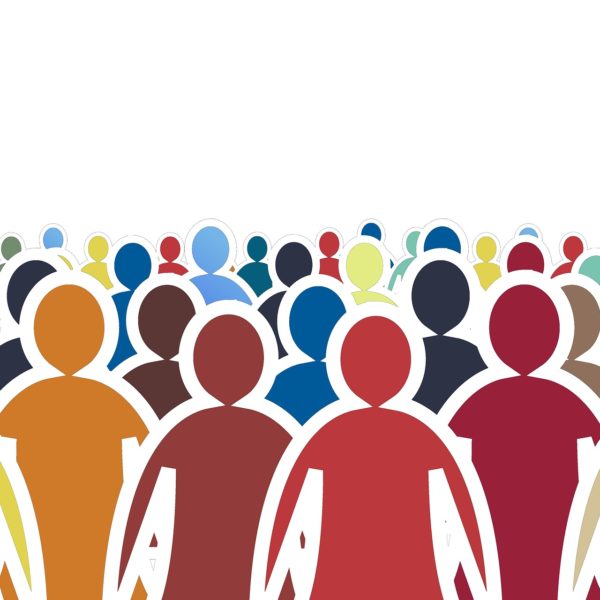Why Attend Mass At All? [ACAT 27]
In this unprecedented time of shutdown and social distancing, the majority of Catholics worldwide are being asked to stay home instead of congregating for weekly Mass. Though a bit ahead of sequence, we wanted to share a few observations about Mass and the Eucharist. In keeping with our annotation of the Baltimore Catechism, the points we reference come from Lessons 22, 23 and 24 of Baltimore Catechism Four.
Why are priests continuing to say Mass when people are asked to stay home?
Mass is more than a worship service organized by and for the faithful, although that is an undeniably important component. Mass itself is “the unbloody Sacrifice of the Body and Blood of Christ” (lesson 24). Sacrifice itself is an act tracing back to ancient times when something of value would be given over to God in gratitude and acknowledgment of God’s goodness. Most often, the object of the sacrifice would be an animal or harvested produce, and the offering would be made by destroying the object in an act of sending it back to God. Archaic though that seems to people of our time, the underlying sense can be compared to children buying their parents gifts from their allowance money. With every provision we receive coming from God, we are unable to create anything that would be a gift to Him; thus, the practice of taking our best and sending it back was the closest approximation of a gift we might give to God.
Looking at the statement above, then, that the Mass is the unbloody Sacrifice of the Body and Blood of Christ, we encounter the center of our faith. At every Mass, the priest offers God the sacrifice of Christ’s Body and Blood, in an unbloody manner.
Who is offering to whom? Why and how was Christ’s Body and Blood offered in the first place?
On the Cross, Jesus offered His Body and Blood in a gesture of reconciliation and atonement. God chose to become human, suffer and die in an offering of sacrifice on behalf of all humanity. God became human for this purpose — that Jesus may offer humanity back to God through Himself.
The Mass, then, is the continuation of this offering. It is continued each time a priest offers the Body and Blood of Christ by consecrating bread and wine in the words provided by Jesus Himself. When the prayer of consecration is offered worthily, Jesus becomes truly present in that offering. The bread takes on the substance of Jesus’ flesh, and the wine takes on the substance of Jesus’ blood. God, in His mercy, arranged the sacrifice to be made perpetually with material that nourishes and soothes us, rather than horrifies and frightens us, as might happen in witnessing the actual sacrifice as it took place on Calvary. Hence, the sacrifice of the Mass is “unbloody.”
Every time a priest offers Mass, he intercedes for us to God, calling down the tremendous graces released to humanity at the moment of Jesus’ death. Each and every time.
Why, then, do we attend, if the priest can do this without us? What do we add?
Now we’ve hit the heart. In fact, we’ve hit the very core of the Autism Consecrated website. What do we bring to the table? Why show up if we have nothing to contribute?
In terms of utility, what do we add by attending the Holy Sacrifice of the Mass? NOTHING.
Yet, deep in the fiber of our hearts, we know that cannot be true. And that’s right: it’s not true. It’s not about our utility. What do we add by attending Mass? OUR VERY SELVES. Our presence alone suffices as a gift to Our Lord as He offers Himself in love for us. We can never say we have nothing to add if we arrive with open hands and open hearts, to stand in witness and in solidarity with Our Crucified Lord as He suffers betrayal and death to prove just how far He will go to say to each one of us: I LOVE YOU !
The Sacrifice of the Mass is the perpetual outpouring of love from God to His people. That love will pour forth whether we are there or not. But knowing that each Mass is an offering not only of ourselves to God, but of God’s tremendous love to us… how could it be that anyone, regardless of ability, regardless of need… ought not to be there to receive that love?
Technology permits us to watch and pray from a safe distance. As we do, may we realize that we are watching Our Beloved, Jesus, pouring out His love for us. That love is as real and valid as any love. But how much more vividly love touches us when we are able to receive it in person!
May our temporary absence give us time and space to reflect on the true nature of the Mass. More importantly, may we reflect on how it feels to be separated from this Divine Love… and if we can ever say that anyone among us could not benefit, and be of benefit, by attending.




